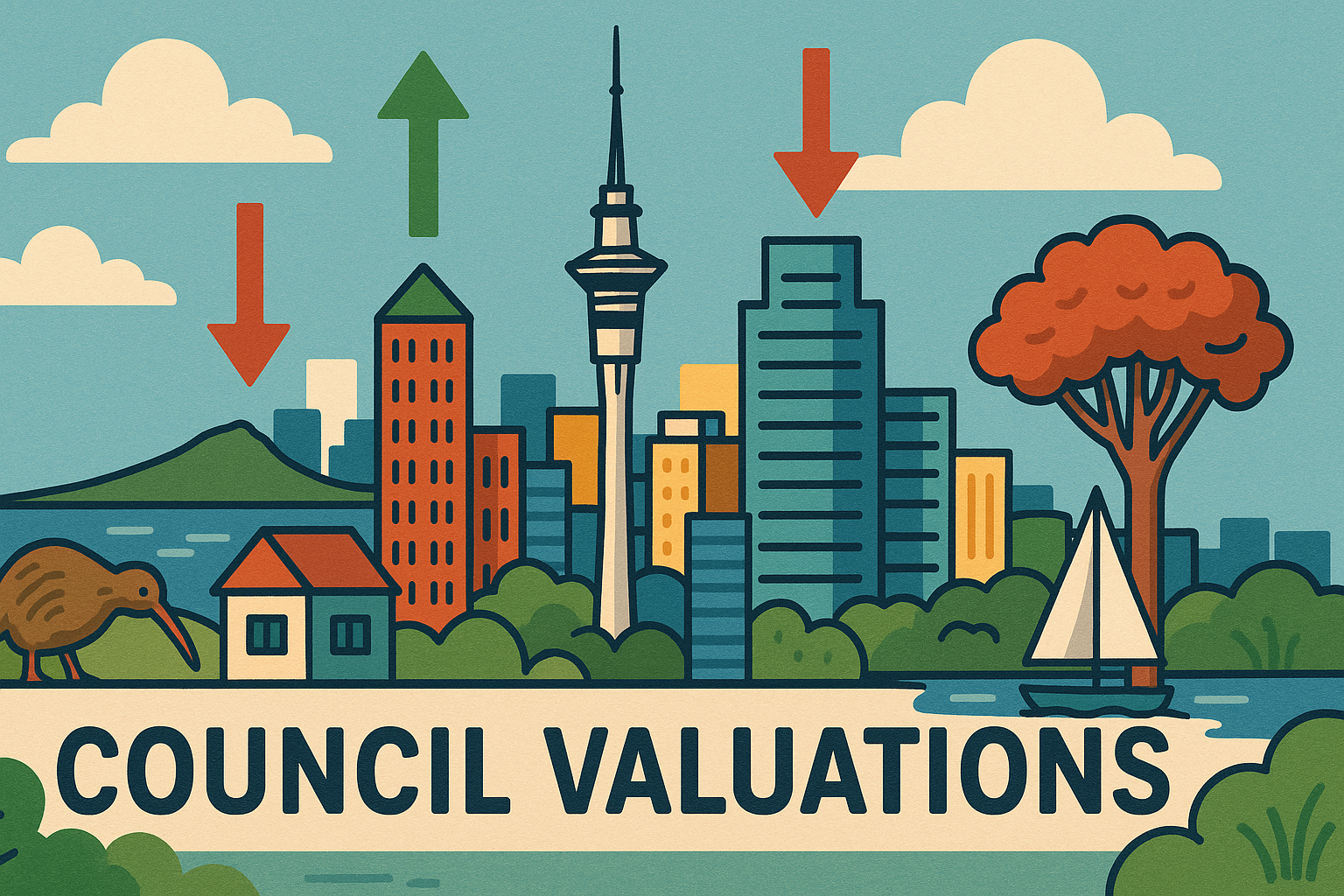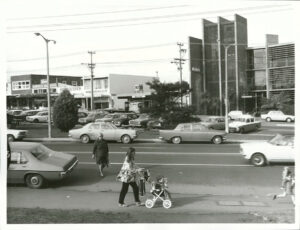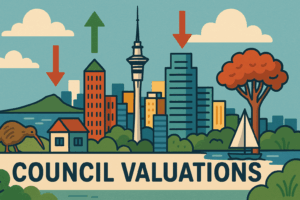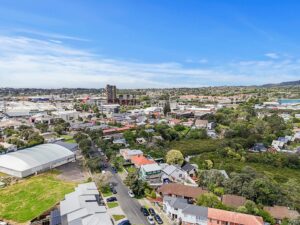Big changes are coming for Auckland homeowners in 2025, and it all starts with three words: valuation Auckland Council. Whether you’re a first-time buyer, a seasoned investor, or just trying to keep your bills in check, it pays to understand what these updated values mean—and how they’ll affect your Auckland council rates. These updated values, also referred to as new values, reflect the latest property assessments based on recent sales data and zoning changes.
Let’s unpack what’s happening, why it matters, and what you can do about it. Auckland Council has signalled that new values will be delivered to property owners in 2025, officially providing the new property valuations directly to residents.
What Are Auckland Council Valuations?
Every three years,
Auckland Council conducts property revaluations to update the
capital value of every property in the region. These values—also known as
rating valuations—are used to set rates for your
Auckland city rates for the next three-year cycle.
These revaluations are a legal requirement and are used to fairly set rates based on current market values. The valuation is not what your home would sell for today, and it’s not done by a real estate agent. It’s a council-driven process based on things like:
- Location
- Land size
- Zoning
- Recent comparable sales in your area
- Other property factors
Independent valuers carry out the property revaluations, and the Valuer-General reviews and verifies their work to ensure accuracy and fairness.
The last update was back in
2021, and with Auckland’s property market moving (sometimes up, sometimes down), the 2024–2025 revaluations are expected to shake things up for residential properties. On average, the residential property rate is expected to change by around 5.8 per cent.
Why These Valuations Matter
Your
Auckland council rate bill is directly tied to this valuation. While the overall revenue that
Auckland Regional Council needs doesn’t change just because your house value goes up or down,
your share of the pie might. The total amount the council collects remains the same, but revaluations ensure the distribution of rates among property owners is fair.
So even if rates increase by, say, 5% across the board, whether your individual rate goes up, down, or stays flat depends on how your property value changed compared to others. The updated valuations are used to set rates for each property.
Here’s an example:
- If your house went up more than the average, you’ll likely pay more in rates.
- If your house value dropped or stayed flat while others rose, your rates might even go down.
It’s not a blanket increase—it’s a redistribution.
What Trends Are We Seeing Across Auckland?
Here’s where things get interesting. Based on current sales and growth patterns, early indicators suggest:
- Central suburbs (e.g., Grey Lynn, Mt Eden, Ponsonby) may see modest growth or even a small drop due to plateauing prices since the 2021 boom.
- Fringe suburbs and new developments (e.g., Westgate, Papakura, Flat Bush) could see higher jumps in valuation due to population growth and infrastructure investment.
- Rural and coastal areas like Warkworth or Piha could go either way, depending on zoning changes or flood risk.
While we’ll get the official data soon, now is the time to check in on your property’s likely ballpark value.

The Role of Auckland Council in the Valuation Process
Auckland Council is at the heart of the property valuation process, working hand-in-hand with trusted valuation providers to ensure that every property’s value is fairly calculated. The council’s job isn’t just about crunching numbers—it’s about collecting and analysing a huge amount of data, from recent local sales to unique property factors like location, zoning, and land use. This data-driven approach helps set accurate capital values for properties across the region.
Behind the scenes, the council’s data management team, led by experts such as Rhonwen Heath, is dedicated to keeping all information up-to-date and robust. Their thoroughness in analysing data means that the revaluation process is both transparent and reliable, giving Aucklanders confidence that their rates are based on a true reflection of their property’s value.
Ultimately, the council’s work ensures that the total amount of rates revenue needed for the region is distributed fairly. By setting rates based on carefully assessed property valuations, Auckland Council helps make sure that every ratepayer receives a rates bill that’s in line with the real value of their property. This commitment to fairness and accuracy is key to maintaining trust in the system and supporting the needs of the entire Auckland region.
Receiving and Reviewing Your Valuation Notice
When it’s time for the new capital values to be released, property owners across Auckland can expect to receive their valuation notices in the week of June 9 to June 13. These notices will outline your new CV (Capital Value) and show how your rates are set for the upcoming rating year.
It’s important for Auckland ratepayers to take a close look at their valuation notice as soon as it arrives. Double-check that all the details are correct and that the new value accurately reflects any changes to your property. If you spot something that doesn’t seem right, or if you believe your property’s value has been miscalculated, you have the right to contact Auckland Council to discuss your concerns—and, if needed, to appeal the valuation.
Auckland Council is committed to making the revaluation process as clear and accessible as possible. Their website is packed with additional content and resources to help you understand how your new CV was determined, what it means for your rates, and how to pay your rates bill. There are also options for payment plans and discounts for early payment, making it easier to manage your finances.
By staying informed and proactive, Aucklanders can have confidence that their rates are being set fairly and transparently, and that the revaluation process is designed to reflect the true value of properties across the region.
How to Prepare (and What You Can Do)
- Check Your CV History
Visit Auckland Council’s rates page to review your current CV.
- Get a Comparative Market Appraisal (CMA)
If you’re unsure what your property might be worth now, contact a local agent for a free CMA. It’s quick, and usually no strings attached.
- Plan Ahead for Rates
Once you know where your valuation might land, prepare for changes in your AKL council rates. If it’s a big jump, it’s worth reviewing your budget now.
- Appeal If You Disagree
Once the new valuation is released, you can object—but only within a short timeframe. Keep an eye out for when the new CVs are published, likely late 2025.
Final Thoughts
Whether you love them or loathe them,
Auckland regional council valuations are a big deal. They can shape your household budget, your resale strategy, and how you think about your investment in Auckland property.
With a clear understanding and a bit of forward planning, you can stay ahead of the curve—and ahead of your next
Auckland city rates bill.
Need Help Estimating Your Property Value?
As always, We’ll be sharing tools, predictions, and local insights with our readers. Want to know what your homes might be worth before the council tells you? Drop your address in the comments or message us directly—no cost, no catch.









